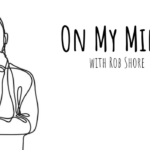It’s bound to happen at some point.
Your superstar PM abruptly resigns.
Your firm’s rating takes a major downgrade.
Or, heaven forbid, a scandal plasters your name across the front page of the industry trades.
How will you handle it?
Even more importantly, how can you position yourself today for what may come tomorrow?
Melissa Agnes is a sought-after international crisis management keynote speaker.
Fluent in English and French, Melissa continues to travel the world speaking to organizations and audiences including NATO, Ministries of Foreign Affairs, Ministries of Foreign Defense, Ministries of Health, as well as a wide range of private and public companies, universities and nonprofit organizations.
A go-to source for the press, Melissa’s recent press coverage includes Forbes, WSJ, VIBE Magazine, USA Today and more. Melissa is also a regular guest on the leading morning radio talk show, CJAD, where she is referred to as “the official crisis manager of the Tommy Schnurmacher show”.
Click here to get more information about Melissa Agnes.
To inquire about Melissa for your next event through Wholesaler Masterminds Speakers Bureau contact us at info@wholesalermasterminds.com
Ask us about our Conference Success Plans – We’re Helping Distributors Maximize Their Conference ROI
Need help subscribing? Instructions are here.
Three Tips to Help Wholesalers be Crisis-Ready
What do you do when crisis strikes?
What can you do?
In times of crisis, wholesalers can find themselves in one of the most challenging positions. You are the face of the firm’s relationship with your clients and those clients look to you for answers and explanations, yet you’re at the mercy of the home office as they’re responsible for developing the protocols and providing you with talking points and directives.
But what if their talking points are minimal and their directives are lacking?
If you find yourself in this type of situation during a breaking crisis, it’s already too late. But the good news is that there are things you can do now to give yourself a leading advantage if and when the worst were to happen.
Following are three steps you can take now, that will help you be crisis-ready.
Step 1: Know the difference between an issue and a crisis – before a crisis strikes
In order to effectively respond to and manage a crisis, you need to first define what a crisis is and means to you, your clients and the organization you represent. Between the effects of social media and the real-time news cycle, it’s easy in this day and age to misinterpret an issue for a crisis – and sometimes, a crisis for an issue. Both are mistakes you want to avoid.
When looking to define what a crisis means to your organization, the following is a definition that I like to use as a starting point when initiating work with my clients:
A crisis is a negative event or incident that risks negatively impacting the organization’s reputation and/or its bottom line over the long-term.
This is a simplified definition that’s meant to help you think about what’s important: the potential long-term impact and the important steps to take to effectively mitigate that long-term negative impact.
And I’m not talking about spinning, avoiding or covering up the truth here. In fact, it’s the opposite that matters most. Effective crisis management is about the relationships you share with those who matter most to your brand and the action steps you choose to take to continue to foster and strengthen those relationships, even in difficult times. Which leads me to the next step in your crisis preparedness.
Step 2: Take initiatives every day that will help you build and strengthen trust with your key stakeholders
As you know, your business is built on your relationships and those relationships are built on trust. So, fostering and strengthening trust is essential in your day-to-day. But did you know that the coveted trust you build with your stakeholders prior to a crisis can serve as an extreme advantage to you and your organization at the onset of a crisis?
The advantage I’m talking about is the benefit of the doubt.
Imagine this: in the initial moments of a breaking crisis, your clients’ first instincts are to say to themselves “there must be more to the story. I’ll wait to hear from [insert your name] before I jump to any conclusions or make any impactful decisions.”
This benefit of the doubt means your stakeholders will be ready and willing to hear you out; to hear your side of the story. And if you then take the right actions to continue to meet their expectations, you have a much higher chance of salvaging the relationship – and your reputation.
I’m not saying that your bank of goodwill and trust won’t take a hit in times of crisis. It inevitably will. But the goal is to have enough trust built up that it won’t all be lost, giving you the opportunity to continue to do what’s right in response to the crisis.
Step 3: Be in a position to do what’s right
While the above two steps are completely in your power, this last step may be a little more challenging, depending on your role and position within the organization, as well as the type of crisis that may strike. But that’s not to say you can’t think through some high-risk scenarios that are the most likely types of crises to occur to your business and/or industry, and begin to ask yourself the bigger questions, such as:
- In each of these scenarios, what would my stakeholders expect of me?
- What would they expect of the organization?
- What would my organization expect of me?
- How can I begin to put myself in a position to adequately meet these expectations?
The fact of the matter is that crisis preparedness is smart business and no matter your position, there are things you can do now to help you successfully manage any crisis that may come your way.
Knowing how to identify a crisis and its level of severity; putting “maintaining relationships” at the top of your priority list; and putting thought into asking (and answering) the bigger questions are all things that are in your power to do now – and you’ll be grateful you did, if ever you come face to face with a damaging crisis.
Written by Melissa Agnes


 Become a Crazy Good Speaker! with Deirdre Van Nest
Become a Crazy Good Speaker! with Deirdre Van Nest Wholesalers, Do You Know the Rules of Highly Effective Networking? with Michael Goldberg
Wholesalers, Do You Know the Rules of Highly Effective Networking? with Michael Goldberg Great Wholesalers Give More in Value Than They Receive with Bob Burg
Great Wholesalers Give More in Value Than They Receive with Bob Burg On My Mind: What Rocks Are You Carrying Around?
On My Mind: What Rocks Are You Carrying Around? On My Mind: You Versus 183 Other Wholesalers
On My Mind: You Versus 183 Other Wholesalers